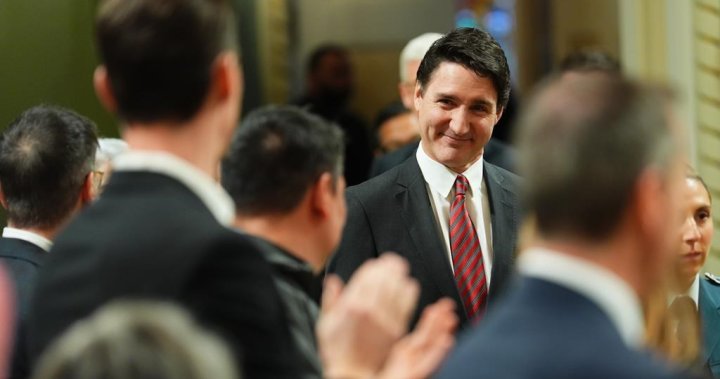Justin Trudeau’s surprise announcement to resign as leader of the Liberal Party and Prime Minister of Canada marks the culmination of mounting pressure and internal dissent that had been brewing for months. While the proximate cause appears to be the recent and unexpected resignation of Chrystia Freeland from her prominent cabinet positions as Deputy Prime Minister and Finance Minister, the underlying factors contributing to Trudeau’s decision are multifaceted and complex, stemming from a confluence of political challenges, eroding public support, and growing dissatisfaction within his own party.
The calls for Trudeau’s resignation reached a fever pitch in the weeks leading up to his announcement. The departure of Freeland, a highly regarded figure within the Liberal Party, seemed to trigger a cascade of dissent, with prominent members of the caucus, including Liberal riding association presidents, publicly voicing their concerns about the party’s future under Trudeau’s leadership. These concerns, initially expressed discreetly, gained momentum and became increasingly vocal, culminating in direct calls for his resignation. This growing chorus of dissent, emanating from various quarters within the party, signaled a significant erosion of confidence in Trudeau’s ability to lead the Liberals to victory in future elections.
The groundswell of opposition to Trudeau’s leadership had been building steadily over the preceding six months. The loss of key ridings in by-elections, coupled with declining poll numbers, fueled anxieties within the party about its electoral prospects. The calls for Trudeau’s resignation were not limited to backbenchers or disgruntled party officials. Senior figures within the party, including members of the Quebec caucus and a substantial portion of the Ontario caucus, also expressed their desire for a change in leadership. The magnitude of this internal pressure became undeniable when a significant number of Ontario MPs held a meeting specifically to discuss the party’s leadership and tasked their caucus chair with communicating their concerns directly to Trudeau.
Furthermore, the resignation calls extended beyond the geographic confines of specific provinces. The Atlantic Liberal caucus also issued a formal letter urging Trudeau to step down, indicating a widespread dissatisfaction with his leadership across the country. This coordinated effort by different factions within the party to pressure Trudeau to resign underscores the depth and breadth of the internal crisis facing the Liberals. It also highlights the growing perception that Trudeau had become a liability rather than an asset to the party’s electoral fortunes.
The seeds of discontent with Trudeau’s leadership had been sown even earlier, with simmering concerns emerging as far back as the summer of 2023. Public opinion polls conducted in mid-June revealed a significant decline in Trudeau’s approval ratings, with a majority of Canadians expressing a desire for him to step down. This growing public dissatisfaction mirrored the concerns brewing within the Liberal Party itself. Backbench MPs, including Wayne Long and former Environment Minister Catherine McKenna, had voiced their concerns about Trudeau’s leadership and called for a secret ballot on the matter. Even prominent figures outside of federal politics, such as former British Columbia Premier Christy Clark, weighed in on the leadership question, signaling a broader recognition of the challenges facing the Liberal Party.
The calls for Trudeau’s resignation were not solely driven by recent political events or declining poll numbers. They also reflect deeper, long-standing concerns about the direction of the Liberal Party under his leadership. Former Liberal Senator Percy Down, a seasoned political strategist, publicly criticized the government’s fiscal policies and urged the party to return to the center of the political spectrum. This critique echoes a sentiment expressed by some within the party who felt that Trudeau had drifted too far to the left, alienating centrist voters and making the party vulnerable to a resurgent Conservative Party under Pierre Poilievre. The accumulation of these factors, ranging from recent political setbacks to long-standing policy disagreements, created a perfect storm that ultimately led to Trudeau’s decision to step down. His resignation marks a significant turning point for the Liberal Party, ushering in a period of uncertainty and introspection as it seeks to redefine itself and chart a new course for the future.

